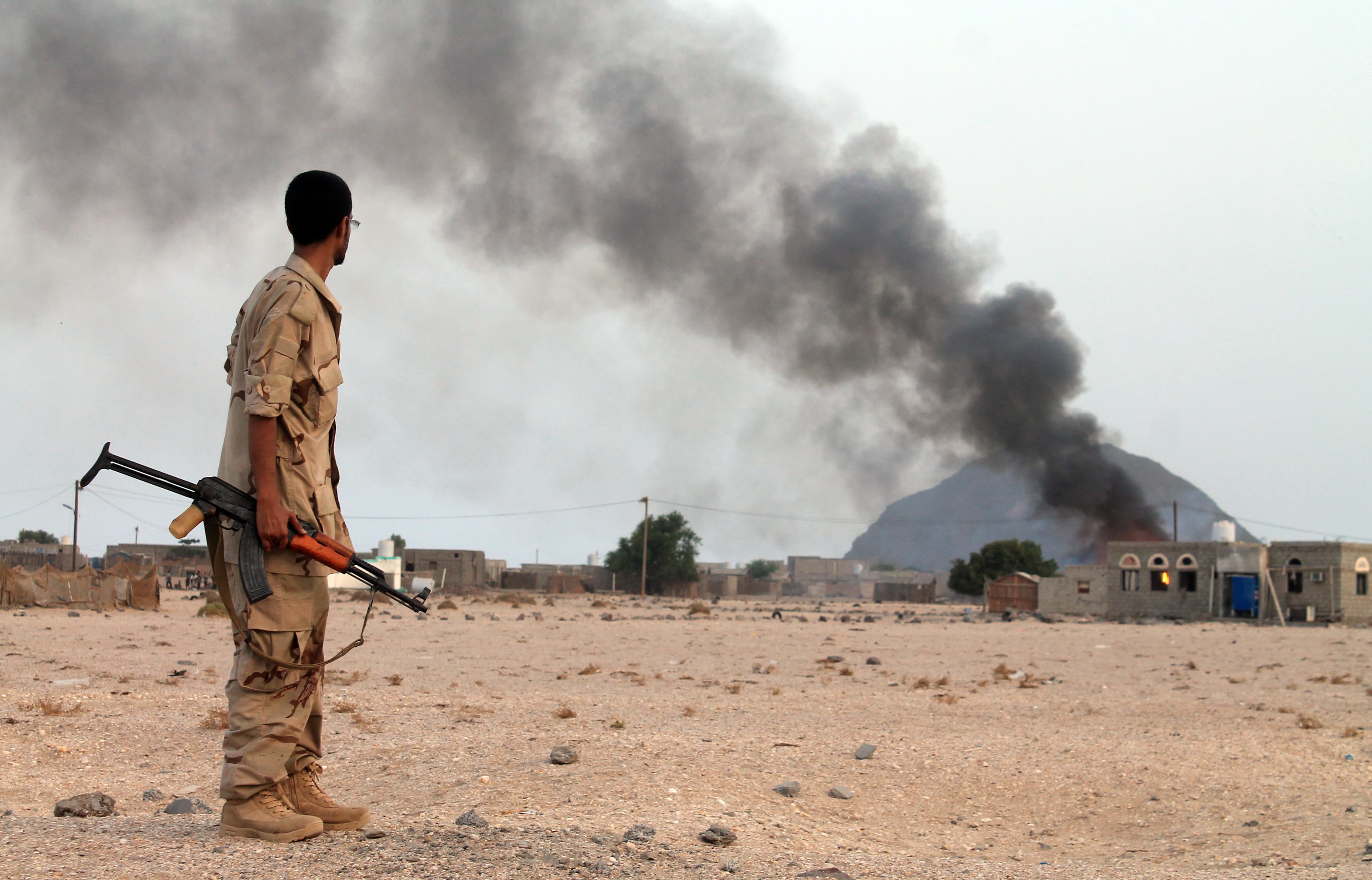WASHINGTON — The powerful Senate Foreign Relations Committee chairman is lifting his eight-month hold on U.S. arms sales to Gulf Cooperation Council member states, which he levied to pressure a resolution with Qatar.
Sen. Bob Corker notified Secretary of State Rex Tillerson in a Feb. 8 letter obtained by Defense News that he was lifting his hold in the name of cooperation against terrorism, while acknowledging the crisis between the Saudi-led bloc and Qatar is no closer to a resolution.
“Unfortunately, there still isn’t a clear path to resolving the GCC rift,” said Corker, R-Tenn. “Given that weapons sales are part of our security cooperation with these states, I am lifting my blanket hold on sales of lethal military equipment to the GCC and will resume informally clearing those sales if the administration can make the case that that [sic] the purchasing state is taking effective steps to combat support for terrorism.”
“It is important to underscore that U.S. weapons sales are intended to strengthen cooperation with U.S. partners and advance U.S. national security interests, and we will continue to evaluate weapons sales on those bases,” Corker said.
The move will likely be welcome news to the U.S. defense industry and Mideast allies. The hold had impeded a major market to the U.S. and cast a cloud over billions of dollars in sales already in the pipeline, before Corker later clarified that he was holding new sales only. Russia, meanwhile, stepped up its interest in the Gulf market.
His reversal comes comes amid a flurry of high-level engagement, including visits, between U.S. and Gulf officials. At the U.S.-Qatar Strategic Dialogue last month, Tillerson and Defense Secretary Jim Mattis reaffirmed the importance of U.S.-Qatar relations, and President Donald Trump thanked the Qatari emir for taking steps against terrorism.
Qatar is home to the largest U.S. air base in the Middle East, Al-Udeid, which houses some 10,000 American troops and has been key in the war against the Islamic State group.
In a diplomatic visit to Kuwait this week, Tillerson called for an end to the more than seven-month GCC-Qatar dispute, warning that it harms regional security. He also touted Kuwait’s upgrading its Air Force with the purchase of American F/A-18 fighter jets.
“I think there will be other discussions of future economic opportunities as well,” Kuwait Times quoted him saying.
Though major combat operations against ISIS have ceased since the group lost much of the territory it held in 2014, Tillerson said the militant group is still a threat to the region, the U.S. and other nations.
“The timing of this release is unsurprising,” said Becca Wasser, and analyst at the think tank Rand, noting the recent talks. “It is likely that over time, the hold increasingly became a liability, another issue for the Gulf states to point as a sign of shaky U.S. support, particularly when juxtaposed with the Trump administration’s push to sell arms.”
”The Qataris are currently riding a wave of positive momentum after a warm welcome in Washington for the Dialogue, and any arms sales or deliveries would be captured in this momentum,” Wasser said. “For Abu Dhabi, Manama and Riyadh, the release sets the precedent that there will be no lasting repercussions for any actions they (or other Gulf partners, for that matter) take that work against U.S. interests.”
Saudi Arabia, Bahrain, the United Arab Emirates and Egypt broke off ties with Qatar in June last year, imposing a land, sea and air campaign and accusing it of supporting extremists and being too close to Iran. Qatar denies the allegations and accuses the bloc of aiming to undermine its sovereignty.
At the time, Trump seemed to side against the U.S. military partner, deriding what he called its “extremist ideology in terms of funding” terrorist groups. At the time, Tillerson had issued a very different message, calling on the Arab nations to immediately ease their blockade on Qatar.
Corker then announced that until there was a path to ending the row, he would block new arms sales to the GCC. Major arms sales are subject to preliminary approval by the chairman and ranking member of the Senate Foreign Relations Committee and the House Foreign Affairs Committee before the statutory 30-day congressional review process.
RELATED

In a letter replying to Corker’s lifting of the hold, Tillerson said the U.S. had seen “some operational improvements over the past year, but regrettably, the parties themselves have yet to lay out a clear way forward.”
He stressed that “it is essential that the United States remain a reliable defense partner to the region.”
“As you know, our fight against terrorism continues in cooperation with our Gulf partners,” Tillerson said in the letter, obtained by Defense News. “We will ensure that proposed sales and transfers to GCC countries advance the security needs of our partners, promote interoperability with U.S. and allied forces, and enhance U.S. national security interests in the region.”
Joe Gould was the senior Pentagon reporter for Defense News, covering the intersection of national security policy, politics and the defense industry. He had previously served as Congress reporter.








